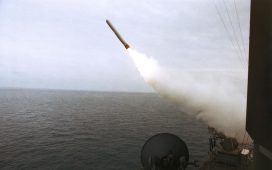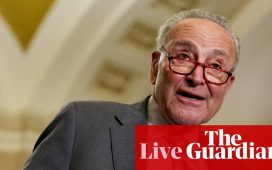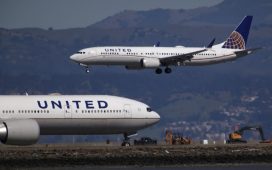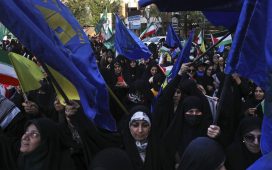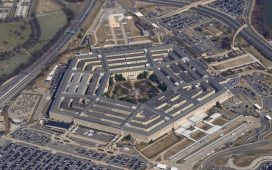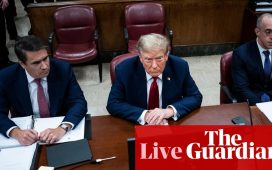ANALYSIS/OPINION:
National Security Adviser John Bolton is in Moscow, where he is scheduled to meet with his Russian counterpart, Nikolai Patrushev, and other senior officials, including Foreign Minister Sergei Lavrov. According to Mr. Bolton, “The reason for that is to continue to carry through on the conversation that President Trump and President Vladimir Putin had in Helsinki during the summer to talk about US-Russian relations and where we can make progress, where we still have issues and disagreement.”
Just the fact this trip is taking place is certainly welcome news since both sides definitely need at least a semblance of dialogue. Also helpful is the recent statement by FBI director Chris Wray that “So far, we don’t see the kind of Russian meddling we did in 2016.”
Is this a positive signal to the Kremlin in advance of Bolton’s trip or perhaps even the beginning of a new strategic thinking in the White House?
Indeed, judging from the recent statements by Vice President Mike Pence and President Trump himself, the White House has decided to pass a dubious title of the “Meddler-in-Chief” from Moscow to Beijing. Some observers wonder whether this signals the Trump administration aims at a new version of the Kissinger’s “triangular” Washington-Moscow-Beijing playbook to stop or at least to slow a process of Russia-China alliance. But the main question is whether Bolton will be championing Trump’s “America First” agenda – or his own. These aren’t necessarily the same thing. Trump ran and won on a platform of improving ties with Russia and ending useless, expensive and dangerous foreign involvements in the Middle East places.
According to Bob Woodward, Trump repeatedly indicates his desire to get out of these commitments: “You guys have created this situation.
It’s been a disaster … You’re smart guys, but I have to tell you, you’re part of the problem. And you haven’t been able to fix it, and you’re making it worse … I was against this from the beginning … I want to get out … and you’re telling me the answer is to get deeper in.”
Then the experts – including Bolton – send him to the someplace called the “tank” and hammer him with reason why he can’t do what he wants. Trump loses, his advisers win. That’s bad enough with the Middle East but how far are we going to push with Russia?
For example, in 2014 when the Ukraine crisis broke out, Bolton called for immediate admission of Ukraine to NATO. If anyone wanted a sure path to war, that would do it.
Besieged by “Russiagate,” Trump so far has been reduced to pointing
out how tough he’s been with Putin, for example, sending lethal weapons to Kiev, which Obama declined to do. Recently an American airman was killed in an accident in Ukraine, during joint exercises.
For what did this American hero give his life? To sustain one of the world’s most corrupt regimes who in addition to giving radical nationalists a free hand is now placing Ukraine on the brink of religious war? According to the IMF this rich and technologically advanced state is now being turned into the poorest in Europe.
Presently Ukraine is a country where millions of well-educated citizen are searching for manual jobs in the neighboring states, including Russia, while radical nationalists are holding regular torch marches, sometime jointly with their German adherents, and city streets are renamed in honor of Nazi collaborators.
As the Sen. Rand Paul suggested maybe it’s time to announce that the 2008 Bucharest declaration that Ukraine will be part of NATO is no longer a U.S. commitment and that Washington is going to prioritize implementation of the Minsk II agreement by working with Russia to end the fighting in Ukraine and get U.S. advisers out of there.
Hours before the White House announced his pick for the NSC job, Bolton reportedly told Trump that he would separate his personal opinions from his responsibility as national security adviser to present all sides and arguments to the commander in chief; he reportedly told the president that when asked for his view, he won’t hesitate to share it, but will give him room to decide.
One reason Trump won was his promise to extricate us from disastrous wars and to concentrate on economy, jobs, infrastructure and drying the Washington swamp. Unfortunately, we are almost in the middle of his first term, and although there are indisputable and impressive domestic achievements, on the foreign policy front things are not going any better. Except for Korea, where it seems Trump’s opinion has prevailed.
In Moscow, Bolton has an opportunity to help his boss. He can recommend important steps to improve American security by working actively and as an urgent priority – as Presidents Richard Nixon, Gerald Ford, Ronald Reagan and their national security advisers to create and institutionalize systems to reduce global tensions with the other superpowers Russia and China and build cooperation and trust with them, cautiously and slowly.
Edward Lozansky is founder and president of the American University in Moscow.
The Washington Times Comment Policy
The Washington Times welcomes your comments on Spot.im, our third-party provider. Please read our Comment Policy before commenting.


